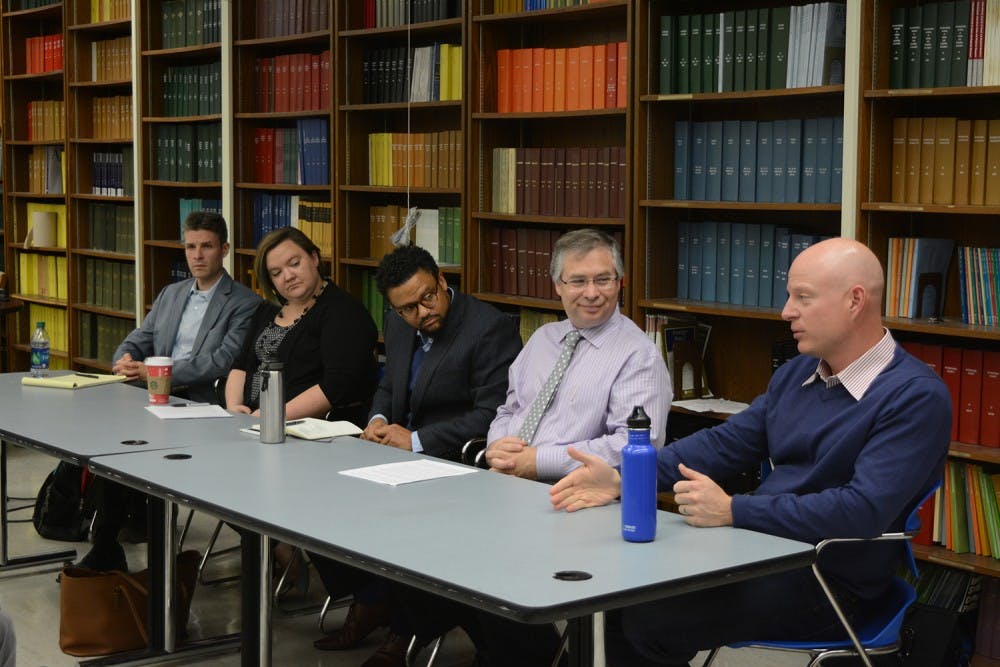She said many people were surprised that more than 50 percent of white women voted for Donald Trump over Hillary Clinton.
“To me, I thought, that’s not surprising at all,” Kreitzer said.
She said that historically, most people — including white women — don’t tend to deviate from party lines.
“We forgot how powerful partisanship itself is,” Kreitzer said.
She said the increased diversity of Congress is important to consider in contrast to Trump’s victory.
“While this election may have resulted in a very polarizing presidential candidate, it resulted in the 115th congress being among the most racially, and religiously, and LGBT-diverse Congress that we’ve had in years,” Kreitzer said. “On the other hand, descriptive representation has actually increased, and it will be interesting to see the implications of that.”
Mosi Ifatunji, a professor of sociology, focused on race and white supremacy. He said on top of recent policy changes, white supremacy was Trump’s last step to success.
“A majority of the American people voted for Hillary, but we have Trump,” Ifatunji said. “Why? Well, because of the redistricting, the voting rights act, the closing of the polls, and then, the last little link was stoking the imagination of white supremacists to come out for once. They had not been coming out.”
Andrew Perrin, a professor of sociology, talked about how political and electoral institutions relate to political culture. He also expressed his own personal distress about the election results.
“I, personally, am very worried and very angry at the way that the election has emboldened the, frankly, bigoted and far-right wing,” Perrin said.
Jason Roberts, a professor of political science, discussed how new numbers will play out in Congress. He said Republicans will experience far fewer barriers.
“The good news for the Republicans at this point is that they’re now going to be able to govern,” Roberts said. “The bad news for the Republicans at this point is they’re now able to govern.”
To get the day's news and headlines in your inbox each morning, sign up for our email newsletters.
Why was this meeting important?
Evelyne Huber, chairperson of the department of political science, said she felt it was important to hold the event because it would help students sort through their emotions.
“The elections were a surprise for many people, and many people are still working through their emotions, and understanding intellectually what has happened,” Huber said.
She said she felt collaboration was important for full understanding.
“This is a great University with a great number of departments, and we should talk to each other even more than we do,” Huber said.
university@dailytarheel.com




